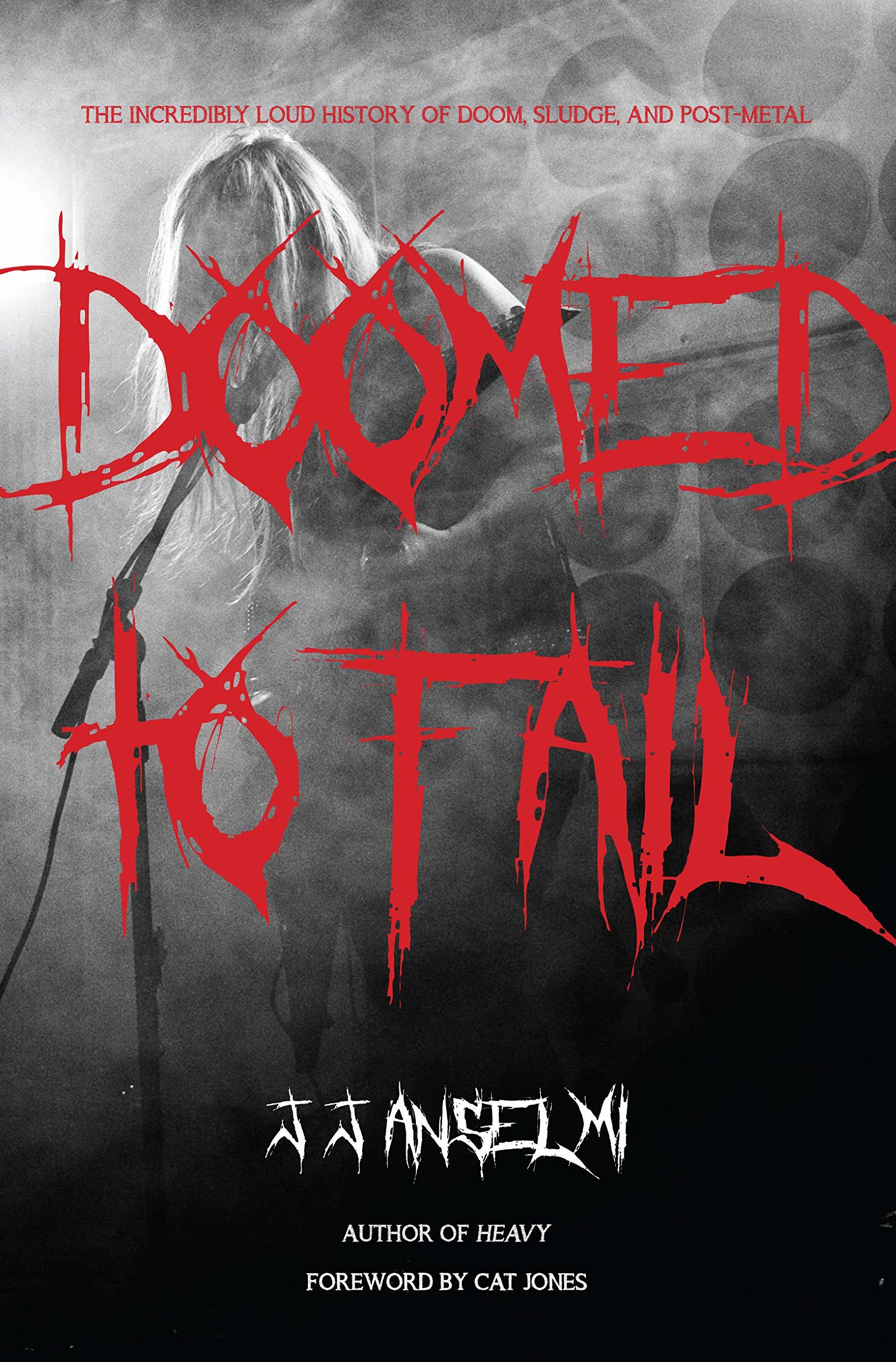In the vast world of music, styles can be broken down on many levels into genres, sub-genres, sub-sub-genres, and so on, ad infinitum, but seemingly none more so than the world of heavy music. Here, sticklers go to great lengths to differentiate musical styles in ways that are obvious and necessary, and sometimes seemingly arbitrary. It makes sense in a wide-ranging genre where artists can have so many overlapping influences and are often not afraid to pull inspiration from multiple sources to create something unique.

In his new book, Doomed to Fail: The Incredibly Loud History of Doom, Sludge, and Post-Metal, author J.J. Anselmi takes a thorough look at what is, in the context of heavy music, a few inextricably linked sub-genres of heavy metal, tracing the roots of each and detailing the various branches and characteristics.
Divided into three sections (one each dedicated to doom, sludge, and post-metal, as the title suggests), the book starts by giving credit to where it is due – the source of all rock and roll, “heavy” or not – the blues (Ma Rainey, Robert Johnson, et.al)
From here, it provides a brief history of the introduction of distortion as a guitar effect into popular music, then starts its first major analysis on the career of the commonly accepted godfathers of all heavy metal – Black Sabbath.
It is at this point, following the Sabbath write-up, that the book moves to discussing the sub-genres, starting with doom. Some bands have entire chapters dedicated to them, such as Maryland legends Pentagram (Anselmi does make a point to confront the problematic behavior of singer Bobby Liebling while giving the rest of the band members their due credit) and Scott “Wino” Weinrich, while other bands with shorter and less prolific (but still important) histories are bundled into one.

This remains the format for the following sections of the book, highlighting bands primarily in the United States, but also in England and Japan. However, just like the blues, some of the more interesting profiles come from bands based in the southern United States, particularly New Orleans, LA-based band Eyehategod (another group whose past behavior has proven problematic in current times, a fact that Anselmi faces head on), and Steve Brooks (front man and guitarist of the Miami, FL bands Floor and Torche), an openly gay man whose riffs are just as or even more powerful than those offered by others in a scene so often associated with over-the-top, ridiculous machismo and, unfortunately, homophobia.
The fact of the matter is there are too many fantastic bands covered in the book to list here, and half the fun is finding a new band and listening to their music while simultaneously reading Anselmi’s colorful and highly-visual descriptions. And to top it off, the author provides a closing chapter of brief write-ups on bands who he thinks will prove to be important players in the coming years of heavy music.
In a book full of many thematic threads, one of the most interesting that runs through it all is the socioeconomic factors related to these genres – in almost every case, these bands are either directly from or directly impacted by a downtrodden, working class society (Birmingham, England and the southern United States – particularly New Orleans and the aftermath of Hurricane Katrina – are the most obvious examples here). Sure, there are a few exceptions where the artists have pursued higher education (see Author & Punisher, members of Godflesh, etc.), and not all of the musicians come from blue collar families, but when it comes down to the creation of this music and taking it on the road for any given period of time, there is no industry infrastructure in place for a lot of these bands – it is still very much a do-it-yourself endeavor that relies heavily on mutual scenes, relationships, and a work ethic not unlike that of the blue collar. Many of these bands still have day jobs, or at least jobs flexible enough for them to supplement their income before hitting the road anywhere from weeks to months at a time (except for Jucifier, who have taken to living out of an RV to ensure a constant touring regimen).
Part of the appeal of music like doom, sludge, and post-metal is that it cuts through the normal pop culture bullshit associated with the mainstream music industry to get to the core emotions of the performers and audience members – the most important factors are the songs and the people. And after all, what is music about other than self-expression and connection to the like-minded? Doomed to Fail, whether explicitly or implicitly, highlights this on every page. While the primary audience of the book are those who love the specific types of music, there is something here for anyone who is interested in the cultivation and proliferation of music that exists solely outside of the mainstream.
Doomed to Fail: The Incredibly Loud History of Doom, Sludge, and Post-Metal, published by Rare Bird Books, was released on February 11. Copies can be found at rarebirdbooks.com, or you may find it at one of your local book stores.
Listen
Listen
Listen
Listen
Related Articles
Related Articles
Related Articles
Page [tcb_pagination_current_page] of [tcb_pagination_total_pages]
Listen
Listen

